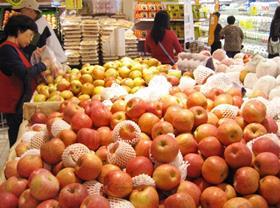
The decision by authorities in Taiwan to allow traces of the pesticides endosulfan in a range of fresh produce has possibly led to the entry of tainted fruit, according to academics in the country.
Rules governing endosulfan residues were relaxed on 29 March by the Department of Health (DOH) to allow a maximum limit of 0.05 parts per million – a move that Sun Li-Chun, a professor at the agricultural economic department of National Taiwan University, claimed may have been a result of political pressure on the government by the US.
Mr Li-Chun told eTaiwanNews.com that two batches of US apples were rejected in February after failing pesticide residue tests, with six batches stopped in March. Following the change in regulations, no US apples had been rejected in April or May, prompting fears that the relaxed rules may have led to tainted fruit entering the country.
However, Economics Minister John Teng said that apples had not come up as part of the recent Taiwan-US trade talks. The DOH added that the new standards were safe and followed rules drawn up by the United National Food and Agriculture Organisation and World Health Organisation.
Endosulfan is banned in several countries worldwide including theEuropean Union, as it is believed to cause miscarriage and damage theimmune system, according to eTaiwanNews.com.
In addition to apples, the new regulations apply to cherries, plums,tomatoes and almonds, all of which Taiwan frequently imports from the US.



